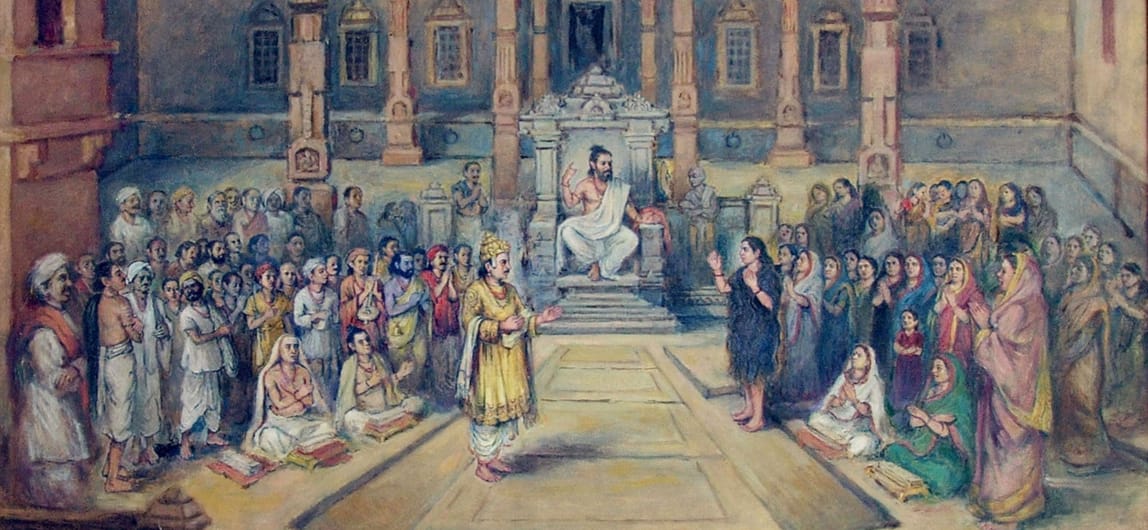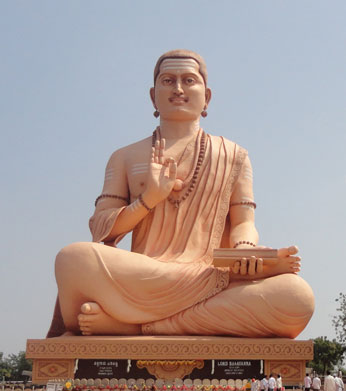Sharana Saahitya
ON THIS PAGE
QUICK FACTS
Saahitya
The Basava Philosophy was constitutionalism in in a unique manner. In the historical development of religions we usually see, a prophet or a founder preaching a religion that is carried on through oral preachings which are later systematised and given a proper shape after the gap. The Basava Philosophy was systematised hand in hand with its origin, or to express it more clearly, it was first systematised and later conveyed to the common masses. The reformative and prophetic faith was systematised in an academy called “Anubhava Manatapa” or the “The house of religious experience” which was established in 1140 AD at the city of Kalyana, Southern India.

This institution attracted seekers of truth so quickly that people from all castes, various occupations, and of different ranks gathered round that nucleus. This rare but monumental institution, also called Mahamane of Great House, contributed a vast quantity of mystic literature and a galaxy of seven hundred and seventy saints together with thousands of followers within a short span of time. Among this constellation three hundred were writers, and sixty ladies were great saints, thirty of these producing a vast quantity of literature.
Many problems concerning the individual and society were discussed in that assembly. When we go through the dialogues of Anubhava Manatapa we are surprised to see the first idea of a parliament germinating in the history of mankind. Allama Prabhudeva, a great Yogi of extraordinary achievement was the president and Lord Basava was acting as the Prime Minister. Channabasava can be compared to the speaker while at the same time working as the editor, and compiler of vachana literature. The only difference between the present day parliament and AnubhavaMantapa is that the members were not elected by the people, but were picked up or nominated by the higher authorities of the Mantapa, the necessary qualifications expected being spiritual attainment. The problems tackled were of a various nature covering social, religious, spiritual, yogic, psychological, economic and literary spheres. All members and followers were given full freedom of thought, speech and action.
Mysitc-philosophers of Anubhava Mantapa had no intention of withdrawing from society, from mundane problems, or from their worldly responsibilities, but tried instead to make their normal like a means for salvation. That is why among the many rules, the first and compulsory rule is to take up an occupation. The idea behind this rule was everybody’s bread should be earned by the sweat of his own labour. Prominent among such members of the Anubhava Manatap were Veera Vyraagini Akkamahadevi, Jangamoorthy Allamaprabhu, Nooliya Chandayya, Madivaala Macchayya, Aaydakki Lakkama, Hadapada Appanna, Dohara Kakkaiay, Kinnari Brahmaiyaha etc; These members also known as Sharanas all collectively prepared the literature (Saahitya) which contributes to the Basava Philosophy.



